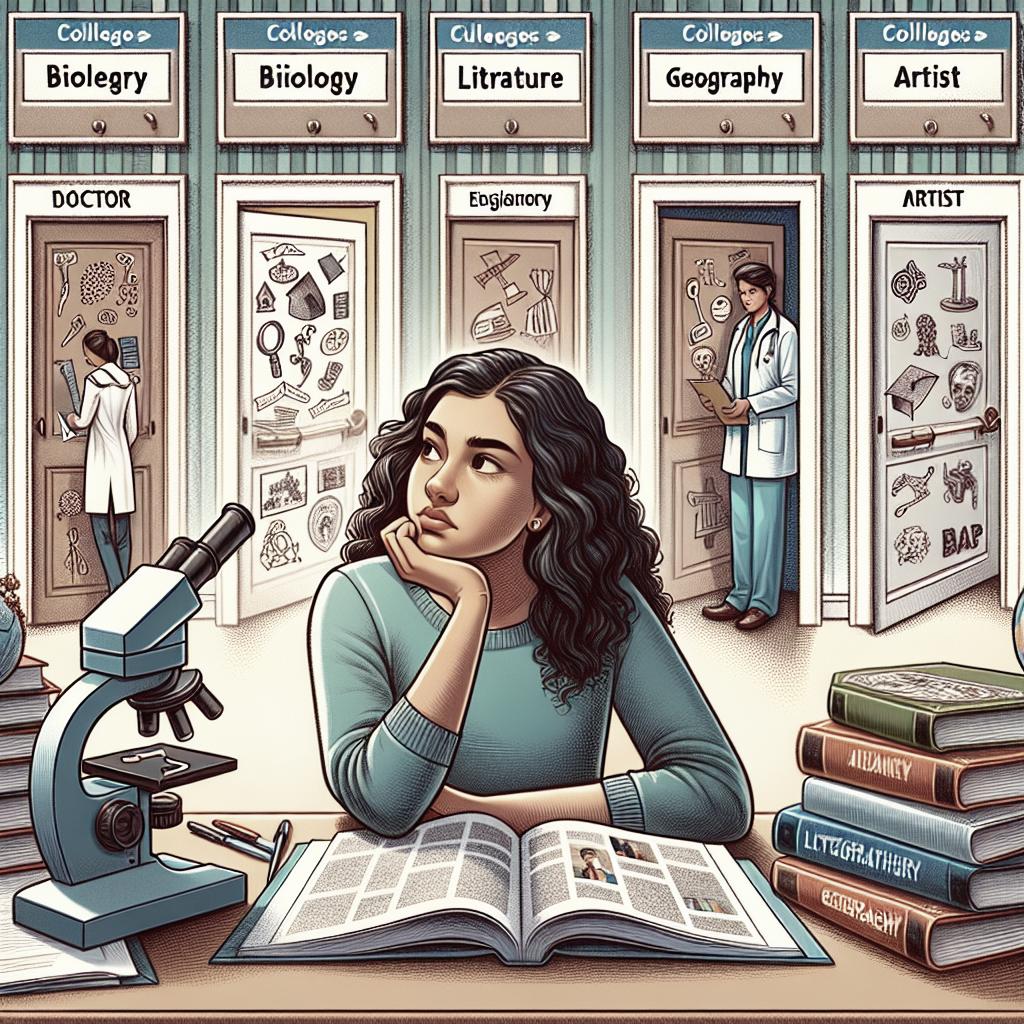Navigating career options during your college years is both a pivotal and exciting journey. Being a college student means you have a unique opportunity to explore diverse fields and gain practical experience even before you graduate. This period is critical for laying the groundwork for your career by understanding personal interests, market demands, and skill sets required in various professions. The following sections will equip you with strategies and insights for exploring career options while college, offering practical steps and recommendations to guide you in this endeavor. Dive in and learn how to effectively shape your future career path while balancing the academic commitments of college life.
Rate this article
Understanding how to evaluate the wealth of information relative to career choices is crucial. Begin by gathering resources that provide an overview of industry trends and job market forecasts. Utilize career ratings and job satisfaction surveys to gain insights into various professions which align with your interests.
When rating career options, consider factors such as growth potential, work-life balance, salary expectations, and fulfillment. It’s important to match your own values with the professional paths you evaluate. Leveraging resources like alumni networks or participating in informational interviews can provide inside perspectives complementing data-driven analyses.
Thanks for your feedback
Feedback is an invaluable tool when exploring career options. Engaging in conversations with peers, mentors, and career advisors can broaden your understanding and provide new directions. Be receptive to constructive criticism as it can shed light on avenues you hadn’t considered.
Appreciate every piece of advice and utilize it to refine your approach to career exploration. By continuously exchanging feedback, you develop an adaptive mindset crucial for navigating dynamic career landscapes successfully.
Tell us more
Your personal narrative is a critical component in choosing a career. Reflect on your passions, skills, and experiences that make you unique. Assess your strengths and areas for improvement as you write down your career interests.
By clearly defining your motivations and objectives, you create a roadmap for what you want to achieve. This self-awareness is vital as it guides your selection of internships, electives, and extracurricular activities that align with your long-term goals.
More articles on Career Counseling
Career counseling resources are excellent for gaining expert guidance. Many universities offer career services that provide workshops, individual counseling sessions, and access to career fairs that are great avenues for discovery.
Explore literature and digital content focusing on career development to stay current with trends. Online platforms and blogs dedicated to career advice can complement traditional counseling services by offering varied perspectives.
Are you sure you want to delete your contribution?
Be mindful of the experiences you choose to pursue during college, as each can contribute to your career development journey. Even if you’re uncertain about the relevance of an opportunity, it may offer transferable skills or insights into your career interests.
Instead of dismissing potential experiences, critically evaluate each option that comes your way. You never know which engagement might lead to unforeseen opportunities or help shape your career trajectory.
Are you sure you want to delete your reply?
In your pursuit to explore careers, maintaining a dynamic approach is important. Remain open to revisiting past decisions and staying flexible when new opportunities align with your evolving goals.
Double-check your strategies and replies to situations, ensuring they are helping you advance. Understand that changing paths or perspectives isn’t necessarily starting over; it’s often a step toward growth.
1
Consider internships and part-time jobs as they provide real-world experience and can offer clarity on job roles. Engaging with industry professionals through these experiences can bridge the gap between academic learning and practical application.
2
Networking plays a crucial role in career exploration. Attend industry conferences, join professional groups, and leverage platforms like LinkedIn to connect with individuals in fields of interest. Building a strong network can lead to mentorship opportunities and insider knowledge.
3
Look into elective courses and interdisciplinary studies that expand your skill set beyond your major. These courses can introduce you to new fields and perspectives you hadn’t considered before.
4
Understand the importance of research projects, either independently or under faculty guidance. These projects can deepen your expertise and allow you to engage deeply with topics that may pertain to your future career.
5
Volunteerism can be a rewarding way to explore career paths while making a social impact. Nonprofits and community-based organizations offer experiences that often foster personal growth and professional discovery.
6
Consider the role of entrepreneurship and startups as potential career paths. Involvement in a startup environment can offer exposure to various facets of a business, giving you a broader understanding of different functions and operations.
Future Prospects
| Key Strategy | Benefits |
|---|---|
| Gather Resources & Rate Careers | Informed decisions based on industry insights |
| Seek and Appreciate Feedback | Improved decision-making and awareness |
| Reflect on Personal Narrative | Leads to a well-defined career path |
| Utilize Career Counseling Resources | Expert guidance and support |
| Diverse Experiences & Volunteering | Broadens skills and insights |
| Entrepreneurship & Startups | Exposure to dynamic professional environments |

